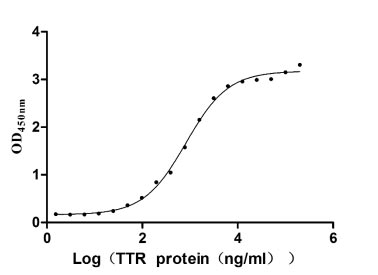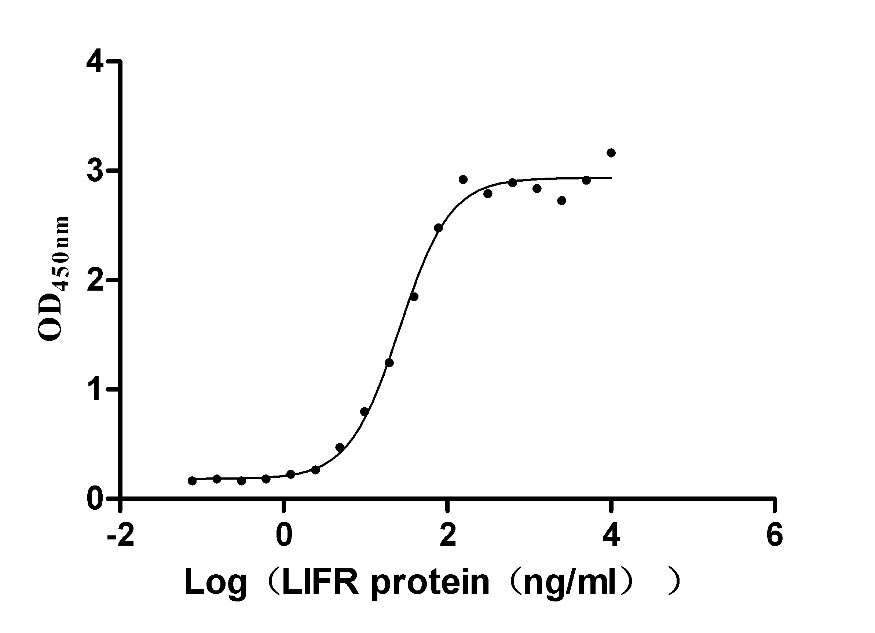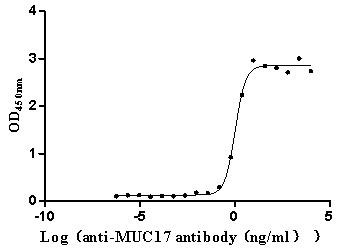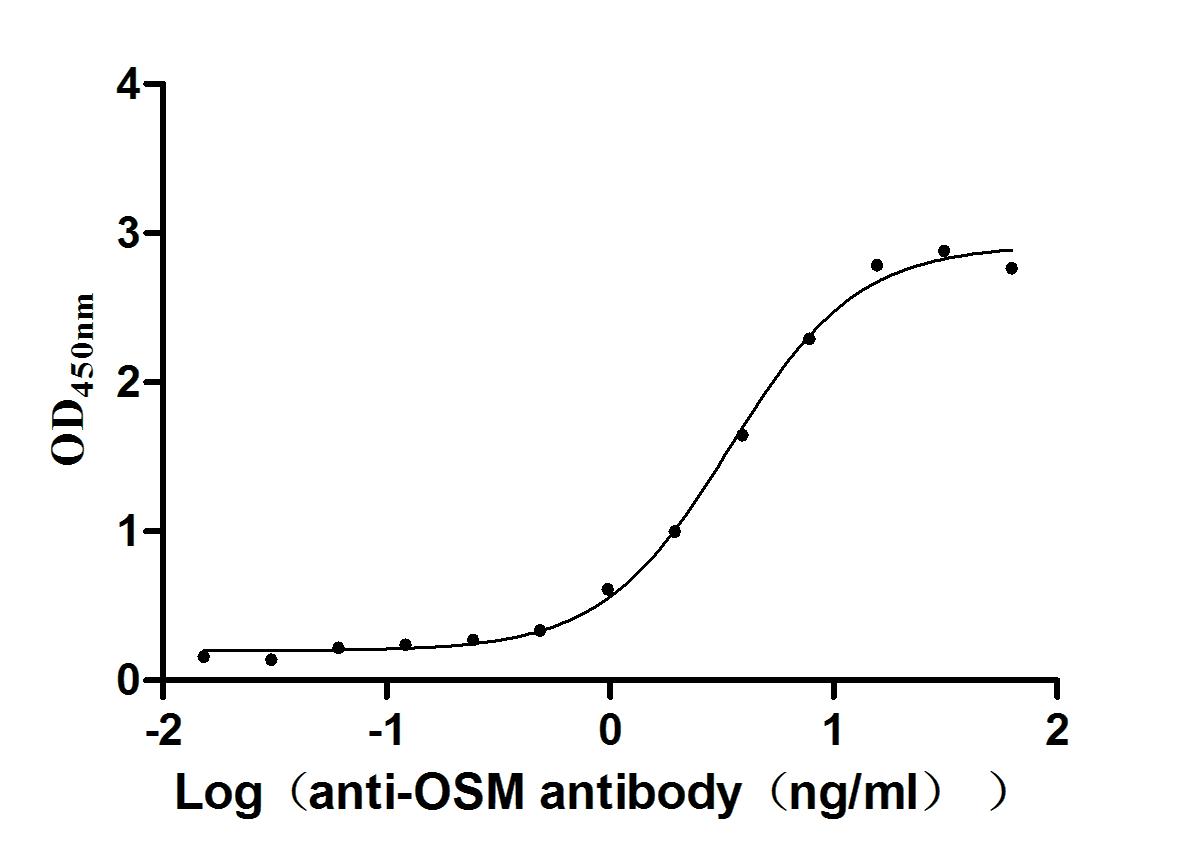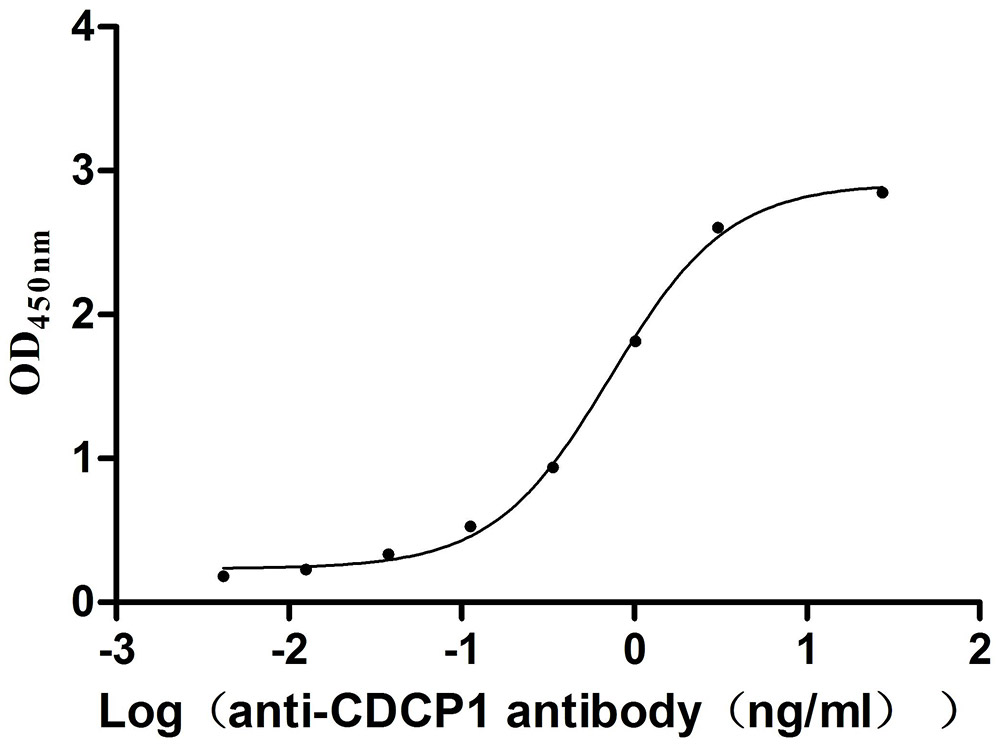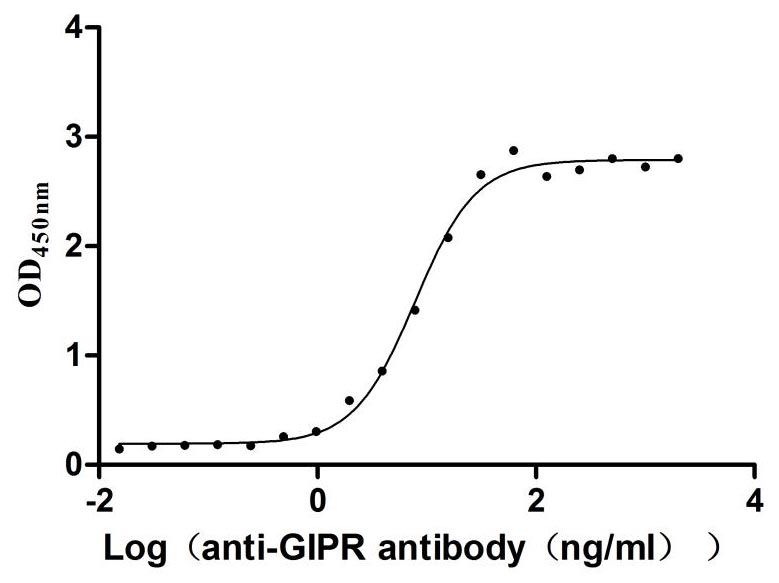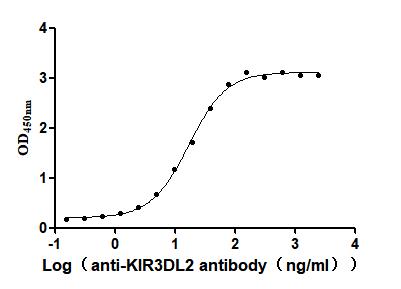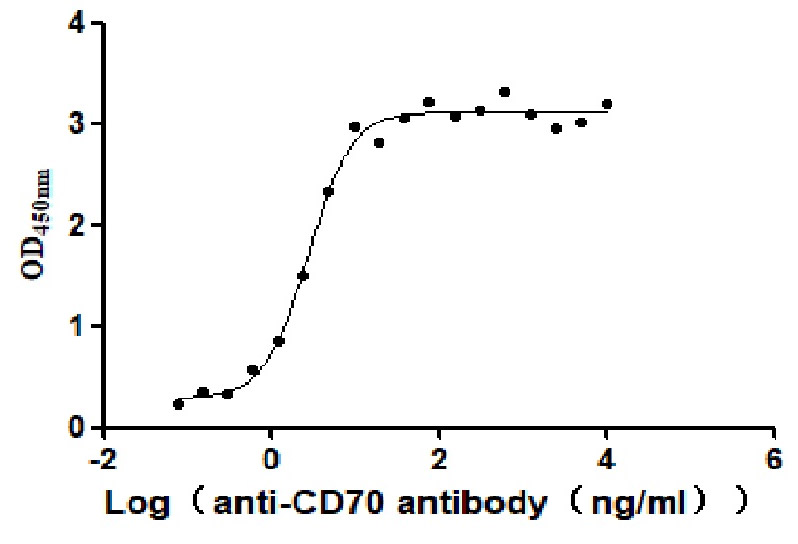Recombinant Bacillus anthracis Thymidylate kinase (tmk)
In Stock-
中文名称:炭疽杆菌tmk重组蛋白
-
货号:CSB-EP007226BQG
-
规格:¥2328
-
图片:
-
其他:
产品详情
-
纯度:Greater than 90% as determined by SDS-PAGE.
-
基因名:tmk
-
Uniprot No.:
-
别名:tmk; BAMEG_0039Thymidylate kinase; EC 2.7.4.9; dTMP kinase
-
种属:Bacillus anthracis (strain CDC 684 / NRRL 3495)
-
蛋白长度:Full Length
-
来源:E.coli
-
分子量:27.8kDa
-
表达区域:1-208aa
-
氨基酸序列MKGLFVTIEGPEGSGKTTLIQSLLPYFEQKEQKVMATREPGGIAISEDIRTILHKQEYTMMEARTEALLYAAARRQHLVEKVMPALNEDYLVLCDRFIDSSLAYQGYARGLGMDKVFEINRFATEDCMPSLTIYLDIEPEVGLARIAKDAGREVNRLDMEDISFHKRVREGYLQVVERFSDRIVLVNADQPMEKLIEEVIQVIEDKLL
Note: The complete sequence including tag sequence, target protein sequence and linker sequence could be provided upon request. -
蛋白标签:N-terminal 6xHis-tagged
-
产品提供形式:Liquid or Lyophilized powder
Note: We will preferentially ship the format that we have in stock, however, if you have any special requirement for the format, please remark your requirement when placing the order, we will prepare according to your demand. -
缓冲液:If the delivery form is liquid, the default storage buffer is Tris/PBS-based buffer, 5%-50% glycerol.
Note: If you have any special requirement for the glycerol content, please remark when you place the order.
If the delivery form is lyophilized powder, the buffer before lyophilization is Tris/PBS-based buffer, 6% Trehalose. -
储存条件:Store at -20°C/-80°C upon receipt, aliquoting is necessary for mutiple use. Avoid repeated freeze-thaw cycles.
-
保质期:The shelf life is related to many factors, storage state, buffer ingredients, storage temperature and the stability of the protein itself.
Generally, the shelf life of liquid form is 6 months at -20°C/-80°C. The shelf life of lyophilized form is 12 months at -20°C/-80°C. -
货期:3-7 business days
-
注意事项:Repeated freezing and thawing is not recommended. Store working aliquots at 4°C for up to one week.
-
产品描述:
The full-length cDNA ORF of Bacillus anthracis Thymidylate kinase (tmk) was N-terminally tagged a 6xHis and then expressed in E.coli. The Recombinant Bacillus anthracis tmk obtained was purified using SDS-PAGE analysis and got over 90% of purity. Under reducing conditions, the tmk protein migrated to an approximately 28 kDa molecular mass band on the SDS-PAGE gel. This recombinant tmk protein may be used to produce specific antibodies or find uses in the DNA synthesis-related studies.
Tmk is a key enzyme exerting an important role in DNA synthesis. It catalyzes the conversion of thymidine monophosphate (dTMP) to thymidine diphosphate (dTDP), with ATP as the preferred phosphoryl donor and in the presence of Mg2+. It takes place at the junction of the de novo and salvage pathways for thymidine triphosphate (dTTP) synthesis. Tmk is thus regarded as a potential therapeutic target for the development of antibacterial, antiparasitic, and anticancer drugs.
-
Datasheet & COA:Please contact us to get it.
相关产品
靶点详情
-
功能:Phosphorylation of dTMP to form dTDP in both de novo and salvage pathways of dTTP synthesis.
-
蛋白家族:Thymidylate kinase family
-
数据库链接:
KEGG: bah:BAMEG_0039
Most popular with customers
-
Recombinant Human Retinol-binding protein 4 (RBP4) (Active)
Express system: Mammalian cell
Species: Homo sapiens (Human)
-
Recombinant Human Leukemia inhibitory factor (LIF) (Active)
Express system: Mammalian cell
Species: Homo sapiens (Human)
-
Recombinant Human Mucin-17 (MUC17), partial (Active)
Express system: Mammalian cell
Species: Homo sapiens (Human)
-
Recombinant Human Oncostatin-M (OSM), partial (Active)
Express system: Mammalian cell
Species: Homo sapiens (Human)
-
Recombinant Mouse CUB domain-containing protein 1 (Cdcp1), partial (Active)
Express system: Mammalian cell
Species: Mus musculus (Mouse)
-
Recombinant Rat Gastric inhibitory polypeptide receptor (Gipr), partial (Active)
Express system: Mammalian cell
Species: Rattus norvegicus (Rat)
-
Recombinant Human Killer cell immunoglobulin-like receptor 3DL2 (KIR3DL2), partial (Active)
Express system: Mammalian cell
Species: Homo sapiens (Human)
-
Recombinant Human CD70 antigen (CD70), partial (Active)
Express system: Mammalian cell
Species: Homo sapiens (Human)



